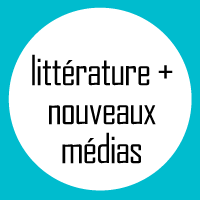Jonathan Baillehache, University of Georgia
Hybrid Courses as a Bridge Between Language and Literature Classes
The gap between language and content courses confronts students and professors of advanced undergraduate classes in language departments with the painful choice of focusing on critical thinking and knowledge at the expense of developing speaking and writing skills. In my hybrid course of French Culture and Civilization, scheduled to start in Fall 2013, I use open-access web applications to create a flipped classroom that bridges the gap between language and literature courses.
Through a WordPress weblog, students can freely access Youtube videos and discuss readings at their own pace on a forum designed to develop their critical skills and strengthen their comprehension and knowledge of French literature. I use the image editing, captioning and subtitling tools of the Youtube Editor to create lectures that are aural, visual and written, and adapts to the students’ individual pace. Through this method, I offer an easier access to content compared to in-class lectures, and can preserve the level of demand of the content of my course. Since, some of the content is being delivered online, we then dedicate in-class time to interpersonal communication activities based on the online forums, to strengthen the students’ language skills necessary to become more fluent French speakers and writers. Students’ projects, finally, encourage both online and in-class communication, providing students with a mode of expression that best suits their own learning profile. Students submit their essays for peer-reviewing through the text-synchronization tool Google Drive. They then present their final draft to the class through either in-class presentation or Youtube videos, leading to discussions conducted either in-class or through the online forum.
Multimedia online content will prove to be more accessible to students at the advanced undergraduate level, and will enable us to shift the focus of in-class meetings to developing the students’ own voice, both at a linguistic and critical level.
Posted in Gallery |
